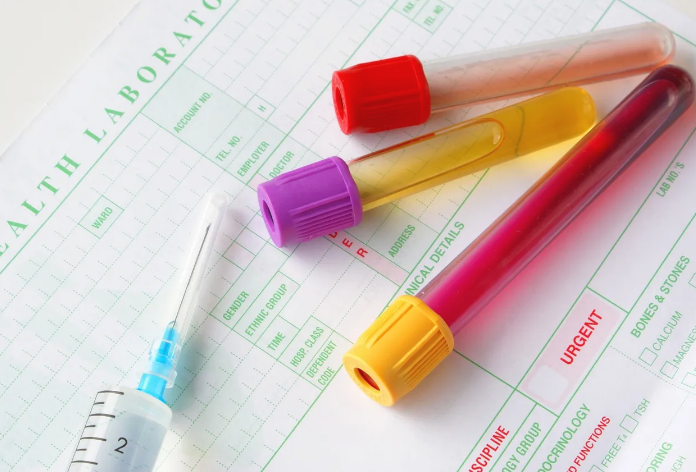Managing Cholesterol Levels

Most of what we hear about cholesterol is bad news. That’s because high cholesterol levels in your blood can contribute to heart disease, which kills more Americans than all cancers combined. But your body actually needs a certain amount of cholesterol.
Cholesterol is a waxy, fatlike substance that is mainly produced by the liver. It is used to make certain hormones, like estrogen and testosterone, as well as vitamin D and bile acids, which help digest fat. Cholesterol also is used to build healthy cell membranes in the brain, nerves, muscles, skin, liver, intestines and heart. But it only takes a small amount of cholesterol to meet these needs.
Too much of the wrong kind of cholesterol can put your health at risk – which is why you don’t want to add too much cholesterol to your diet. The Centers for Disease Control and Prevention reports that about 38 percent of adults in the United States have high cholesterol levels.
When you have too much cholesterol in your blood, the excess contributes to plaque deposits in the lining of the arteries, including the ones that feed your heart. These deposits narrow the arteries and reduce blood flow (a condition known as atherosclerosis), which can lead to heart disease, heart attack and stroke (when occurring in the brain). About 80 percent of people who have a heart attack have high cholesterol.
High blood cholesterol does not cause symptoms but can be identified by a simple blood test ordered by your doctor. The American Heart Association recommends all adults over age 20 have their cholesterol levels checked every four to six years.
Cholesterol moves through your body inside substances called lipoproteins, which are made from fat and proteins. A blood test, which is usually done after fasting, will measure:
- Total cholesterol
- LDL or low-density lipoprotein, also known as “bad” cholesterol
- HDL or high-density lipoprotein, also known as “good” cholesterol – higher levels of HDL are beneficial because HDL can help to remove “bad” cholesterol from your arteries
- Triglycerides, which are another form of fat in the blood – high triglyceride levels are linked to a higher risk of heart attacks
What to Know About the Numbers
When it comes to the numbers, it’s important to remember that there is no “one size fits all.” That’s why we prefer to deemphasize the numbers and, instead, focus on a more holistic approach to identify those at highest risk for cardiovascular disease. While the numbers are important, they are not hard and fast dividing lines in most people. Your target numbers depend on your risk profile, which includes your family history, medical history and lifestyle. People at higher risk for heart disease and stroke have lower targets.
In general, we recommend cholesterol-lowering medications for people with an LDL above 190 who have failed to lower their cholesterol with diet and exercise. But, for example, if you have diabetes, we are very aggressive about prescribing medication if your LDL is above 70. The risk factors we consider include:
- Diabetes
- History of heart disease, heart attack or stroke
- High blood pressure
- Age (risk increases over time)
- Family history
- Chronic inflammatory diseases like rheumatoid arthritis or psoriasis
- Metabolic syndrome
- Early menopause
- HIV
- Certain ethnicities (like South Asian)
- Certain pregnancy-associated conditions
- Lifestyle (sedentary, smoking, obesity)
How to Manage Your Cholesterol Levels
- Improve your diet. The best way to lower your dietary cholesterol is to reduce your intake of saturated fat and trans-fat. This means limiting red and processed meats, dairy products with whole milk, and fried foods. Try cooking with healthy plant oils such as olive oil, flaxseed oil or grapeseed oil. A heart-healthy diet limits sodium and sugar and emphasizes fruits, vegetables, whole grains and fiber, poultry, fish and nuts.
- Become more physically active. An active lifestyle can increase HDL, which may help to remove “bad” cholesterol from your arteries.
- Quit smoking. It’s never too late to quit, and it will make a big difference in your health.
- Lose weight.
- Drink alcohol in moderation. Studies show that excessive drinking can increase LDL and triglyceride levels.
- Take your medication as prescribed by your doctor. A significant body of research supports the use of statins to decrease your risk of heart attack and stroke. If you have already had a cardiovascular event, statins can extend your life. We are also seeing good results with relatively new cholesterol drugs like Repatha® and Praluent® that patients can inject themselves every two weeks. We typically prescribe these drugs for people who are at higher risk, those who already had a cardiovascular event or individuals who cannot take a statin because of side effects.
To schedule an appointment with an Inova cardiologist, call 877.634.6682.
Jason Morda, MD, is an Inova cardiologist who is board certified in internal medicine and cardiovascular disease. He practices in the Inova Cardiology offices located in Alexandria, Springfield-Franconia, Mount Vernon and Woodbridge. He attended medical school at the University of Virginia and did his residency at University Hospitals of Cleveland. He also completed his fellowship in cardiology and cardiovascular disease at University of Michigan. Dr. Morda joined Inova in 2015 after practicing in Northern Virginia, which he has done since 2008.











